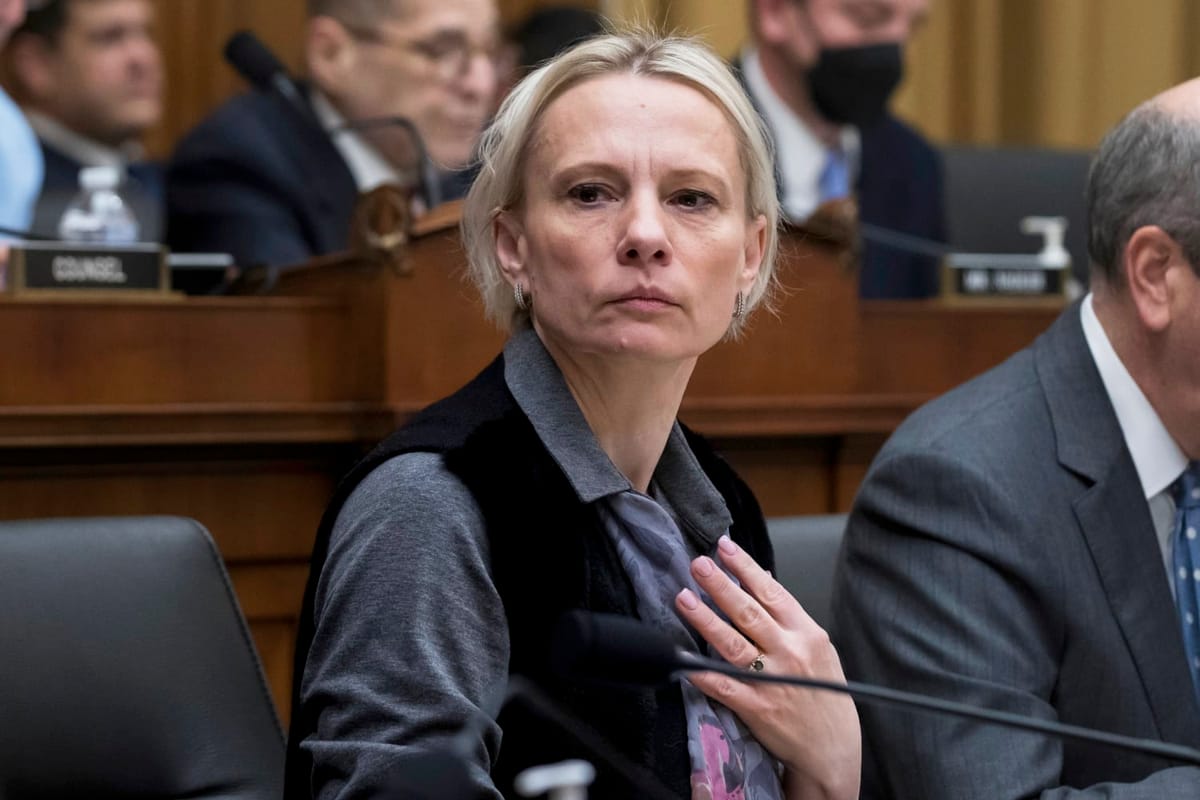Rep. Victoria Spartz announces decision to spurn GOP caucus, backs Musk’s DOGE initiative.
Indiana Rep. Victoria Spartz announces she’ll bypass GOP committees, joining Elon Musk's DOGE group for government reform.

In a bold move, Rep. Victoria Spartz (R-Ind.) has announced she will refrain from participating in the Republican caucus and avoid taking committee positions in the upcoming Congressional term. Instead, Spartz plans to lend her support to Elon Musk’s and Vivek Ramaswamy’s ambitious project, the Department of Government Efficiency (DOGE). This unexpected announcement has sparked reactions from political circles, raising questions about her future role in Congress and the potential impacts on the GOP’s slim majority.
Rep. Spartz’s Decision to Opt Out of GOP Caucus
In a post shared on X (formerly Twitter), Spartz explained her decision to disengage from the traditional Republican machinery in the next Congress. She stated, "I will stay as a registered Republican but will not sit on committees or participate in the caucus until I see that Republican leadership in Congress is governing." Her blunt comments indicate her frustration with the current GOP leadership and its direction in Washington. Spartz added, “I do not need to be involved in circuses,” implying her dissatisfaction with the dysfunction within the party’s ranks.
Her decision comes on the heels of a broader push by some Republicans to reform government operations and cut spending. Spartz's announcement to align herself with DOGE, Musk’s new initiative aimed at creating a more efficient government, is sure to send ripples through the GOP. While many expected her to remain loyal to the party, her willingness to stand apart highlights the ongoing divisions within the Republican ranks.
Spartz’s New Alliance: Musk’s DOGE Group
The Department of Government Efficiency, or DOGE, led by Musk and Ramaswamy, is designed to tackle some of the most pressing inefficiencies within the U.S. government. Musk, a billionaire entrepreneur known for leading companies like Tesla and SpaceX, has long voiced his belief in streamlining government functions and cutting excessive spending. Similarly, Ramaswamy, a biotech entrepreneur, is a vocal critic of the political establishment and has aligned himself with the idea of reducing government overreach.
Spartz’s decision to join this reform-minded group is notable. While Musk’s goals of deep cuts, including proposals for $2 trillion in spending reductions, have drawn both support and criticism, Spartz seems to align herself with this vision. She echoed Musk's sentiments, stating that Republicans must work toward these cuts, despite the likely "hardship" they may cause for many Americans. Her decision underscores her desire to focus on what she sees as an urgent need to reform the federal government, rather than getting bogged down in what she refers to as "circus-like" partisan bickering within Congress.
How Spartz’s Decision Could Affect the GOP
Spartz’s decision to forgo committee positions and refuse to join the GOP caucus could have a significant impact on the Republican Party’s already precarious grip on the House majority. By refusing to participate fully in the GOP’s legislative agenda, she is essentially taking a step back from the party's traditional power structure. This may further complicate efforts for House Speaker Mike Johnson to unite his party members behind a cohesive legislative agenda.
Politico sources have suggested that Spartz's refusal to cooperate might have stemmed from not securing the committee position she sought. If true, this could signal frustration with internal party dynamics and a growing sense of alienation among certain GOP members.
Despite her decision to withdraw from the caucus, Spartz’s alignment with Musk’s reform efforts could bolster the legitimacy of DOGE, which has often been criticized as a non-traditional or unconventional approach to government. Having a sitting member of Congress like Spartz on board may lend the project a sense of credibility, even if her absence from the GOP ranks leaves questions about her role in the party’s future.
The Broader Implications for the GOP and American Governance
Spartz’s break with the GOP leadership seems to reflect a wider trend among some Republicans to push for greater executive power, particularly in the context of Donald Trump’s influence. There are growing signs that Trump and his allies want to diminish the role of Congress in governance, empowering the executive branch to make key decisions. Musk and Ramaswamy’s insistence on using impoundment powers to withhold funds authorized by Congress and the push for recess appointments bypassing Senate confirmation are examples of efforts to centralize authority in the executive.
Spartz’s decision, in this context, can be viewed as part of a broader conservative movement to shift more decision-making power from Congress to the executive branch. By backing Musk’s DOGE initiative, she may be signaling her support for a future where government reform is spearheaded outside the traditional legislative process, possibly even circumventing Congress itself.
Looking Ahead: What Does Spartz’s Future Hold?
While Spartz has stated her intention to remain a registered Republican, her refusal to engage with the party’s standard operating procedures raises questions about her future political career. Will she continue to distance herself from the GOP establishment, or will her involvement in Musk’s DOGE initiative offer a platform for a new wave of conservative reform?
As Spartz continues to align herself with Musk’s vision, her relationship with GOP leadership will be one to watch. Her decision could prompt a larger debate within the party about the role of government, efficiency, and the influence of business moguls like Musk in shaping policy.
In the meantime, Spartz’s supporters and critics alike will be keenly watching how her stance impacts both the GOP and the broader political landscape. Will other Republicans follow her lead and embrace new reform movements, or will Spartz’s solo efforts highlight deeper fractures within the party?
